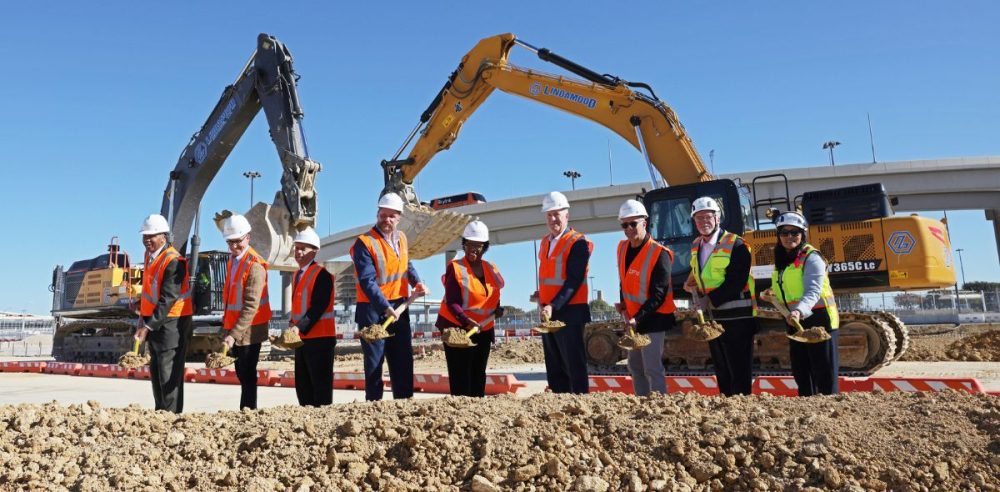Dallas Fort Worth International Airport marked a significant milestone earlier this week with the official groundbreaking ceremony for Terminal F, the airport’s sixth terminal and its first new terminal construction in nearly two decades.
According to a news release from DFW Airport, the $1.6 billion terminal project hopes to upgrade the airport’s capacity and accommodate the surging demand for flights in North Texas.
City and airport officials attended the groundbreaking ceremony, including DFW CEO Sean Donohue, Dallas Mayor Eric L. Johnson, and Fort Worth Mayor Mattie Parker.
“Terminal F will expand the airport’s footprint with state-of-the-art facilities that align with our first-in-class customer experience and operation as we support the historic rise in air travel to and from the North Texas region,” Donohue said.
Terminal F, scheduled to open in 2027, will feature a 400,000-square-foot concourse with 15 gates. Additionally, the expansion of Terminal E will complement Terminal F, adding over 100,000 square feet of check-in, security, and baggage claim space, according to DFW Airport.
Skylink, the airport’s “high-speed people mover,” will also receive a new station above Terminal F. This will offer quick transfers between Terminal F and the rest of the airport.
The project is part of the airport’s broader $9 billion capital investment plan, which includes additional upgrades to Terminals A, C, and E and various “airfield improvements.”
DFW International Airport will use a new modular construction with Terminal F, building large sections offsite before moving them to the airport, following a generally successful similar approach used in 2022 for Terminal C. This method also reduces the impact of construction on the airport’s daily operations, hopefully allowing it to continue serving millions of passengers without any consistent major disruptions.
“By utilizing modular construction techniques that we first pioneered with the High-C Gates, we will deliver Terminal F using technology at a scale that’s unique among airport development projects,” Donohue added.
However, as previously reported by The Dallas Express, some new construction projects tied to DFW’s $9 billion expansion projects have already led to infrastructure challenges for passengers. Despite some of these ongoing issues, local officials remain enthusiastic about the groundbreaking ceremony and the long-term benefits of the airport’s expansion.
Parker spoke on the importance of the new terminal for the airport at the groundbreaking, saying, “This terminal is another step forward in preparing for North Texas’ future. As our region continues to grow, DFW Airport will play an even larger role in connecting our communities with the rest of the world.”
For perspective, DFW International Airport is one of the world’s busiest airports, serving over 80 million passengers in 2023 and offering flights to more than 250 destinations worldwide.


